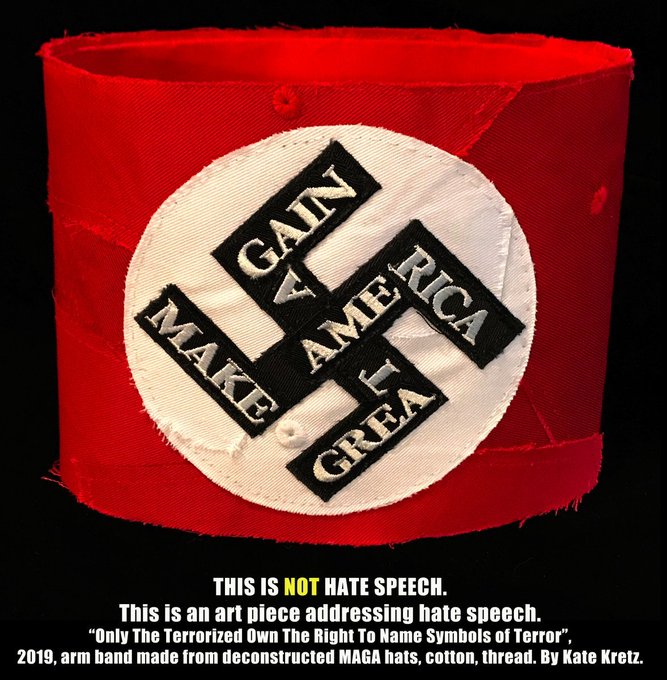By Caribbean News Now contributor
SAN JUAN, Puerto Rico — Some 25 FBI agents this week raided municipal offices in San Juan, Puerto Rico, searching through documents and seizing digital records following an anonymous tip called into the comptroller’s office over how the mayor’s office awards government contracts – specifically, a $4.7 million deal with a construction company.
Since the FBI has for years ignored compelling evidence of a massive $11 billion financial fraud and a $1 billion fuel oil fraud scheme, both involving Puerto Rico Electric Power Authority (PREPA), and San Juan Mayor Carmen Yulin Cruz is constantly butting heads with President Donald Trump on social media, the appearance of politically motivated reprisal is inescapable.
Trump’s animosity towards Cruz was already on display last month when he said there would be no statehood for the US territory as long as critics such as the San Juans mayor remain in office.
In response, Cruz called Trump’s comments about statehood just another effort to avoid responsibility for his administration’s “negligence” in its widely criticized response to last year’s Hurricane Maria.
Governor Ricardo Rosselló added, “This is an insensitive, disrespectful comment to over three million Americans who live in the US territory of Puerto Rico.”
San Juan’s purchasing division was the target of the raid and, while FBI special agent Douglas Leff did not implicate Cruz in the raid, he told local media that “we are going to follow the investigation where it leads us”.
On Tuesday, Cruz tweeted that she has instructed city officials to cooperate with federal authorities and said, “If someone has done something wrong, they should undergo due process and face the consequences of their actions.”
Puerto Rican news agency El Nuevo Dia claimed that the construction company in question, BR Solutions, is owned by a businessman who has made questionable political donations to several Puerto Rican politicians.
Earlier this month, a US district court judge certified a class-action lawsuit against PREPA seeking compensation for an estimated $1 billion losses in electricity overcharges due to a fuel oil fraud by 20 co-conspirators including PREPA, Shell Oil, Petrobras, Alchem and various other laboratories and fuel oil suppliers.
In the original suit, filed on February 24, 2015, in the US District Court for the District of Puerto Rico, Puerto Rico residents and businesses accused PREPA and a total of 20 defendants of perpetuating an extensive fuel oil fraud, resulting in users of electricity in Puerto Rico being overcharged for electricity since 2002. The suit states the defendants colluded to deliver “dirty” fuel oil to PREPA while charging the higher prices for clean fuel oil – prices that were directly passed to users of electricity.
Attorneys allege that PREPA – one of the largest public power agencies in the United States – fraudulently agreed to accept millions of barrels of fuel oil that did not meet specifications of contracts between PREPA and its oil suppliers, or specifications set by the EPA.
PREPA accepted this non-compliant fuel oil and the laboratories certified the fuel oil as compliant due to a long-running corruption scheme that permeated the agency, according to the lawsuit.
In May 2016, a special commission established by the island’s Senate to look into allegations of fraud by PREPA turned over its findings to US federal authorities for further investigation.
In June 2015, another commission of the Puerto Rico House of Representatives issued a 23-page legislative report outlining how government officials in Puerto Rico conspired with Wall Street firms to commit $11 billion dollars in financial fraud.
According to the report, PREPA paid previous bondholders with capital received from new investors, which is the classic hallmark of a Ponzi scheme.
“Noteworthy is the fact that the aforementioned took place in the face of the credit houses, whom, knowing this, and therefore PRPA’s technical insolvency, allowed this public corporation, and thus the people of Puerto Rico, to continue running into debt,” the report said.
The commission recommended that the report be forwarded to the US Justice Department and the Securities Exchange Commission (SEC) for corresponding action.
Questions have since been raised as to the ongoing failure of the local FBI office and the US attorney in Puerto Rico to pursue any investigation into these allegations.
According to Richard Lawless, the CEO of Commercial Solar Power, Inc., a company that was reportedly forced into bankruptcy by what he described as the “bizarre behaviour” of PREPA, the utility has been used to redirect as much as $100 million a year from the people of Puerto Rico to select government officials.
It has been alleged that law enforcement authorities in Puerto Rico stood by and did nothing for a number of years, an assertion that was substantiated by a phone call originating in Alexandria, Virginia, that Lawless said he received some months ago from a man stating that he worked for the US government, which Lawless said he inferred was the Central Intelligence Agency (CIA).
Lawless was told that Puerto Rico came on the agency’s radar years ago because the head of the PREPA fuel purchase office started making direct calls to the then president of Venezuela, Hugo Chavez. They listened in and found out that PREPA was buying sludge oil from Venezuela and billing the utility for high grade oil. The difference in value, hundreds of millions per year (today it would be $700 million a year and is said to be still going on) was allegedly kicked back to the fuel office manager and distributed to politicians and government officials on the island.
As the unnamed government agency continued to listen in on the calls, the caller claimed it became clear that family members of Puerto Rico FBI agents and family members in the Puerto Rico US Attorney’s office were receiving payments based on these “kickbacks”.
“He went on to tell me that the Puerto Rico FBI and US Attorney will do nothing about the oil kickback scheme and the bond rating scheme because they were participating in it. He went on to suggest that because of the separation laws regarding CIA activities and US national law enforcement that there was not much he could do,” Lawless said.
Notwithstanding that the 2015 legislative report, which Lawless described as “no less than a detailed confession”, clearly suggested that a criminal act had occurred and should be investigated, “After reviewing this document and other evidence for many months, the FBI is claiming that the best prosecutors in the DOJ have not yet found criminal grounds to move forward,” Lawless pointed out.
The report claimed that the financial intermediaries and the institutional bondholders, despite being fully aware of PREPA’s dire fiscal situation, had no qualms with unjustly enriching themselves and with having the consequences of their negligent acts be paid for by the people of Puerto Rico.
“Meanwhile, and fully aware that PREPA did not have the resources to repay the debt, investment firms, banks, credit houses, consulting engineers, and PREPA itself failed to bring out into public light the need to make adjustments to the rates charged by PREPA,” the report said.
Investors allowed PREPA to issue bonds, then, PREPA borrowed from private banks to pay the bond’s interests; then, borrowed from the Government Development Bank (GDB) to pay back the private bank loans, and the GDB, in turn, issued more bonds to refinance all. Afterwards, PREPA would issue a new debt to pay GDB’s outstanding interests, pay principal and pre-pay the new bonds’ interests for several years – a cycle that is repeated over and over – and in which the original debt is never paid, the report outlined.
“This practice could constitute a fraud scheme for which the federal agencies that regulate financial instruments and the Security Exchange Commission could take action against and/or pursue civil suits against these institutions,” the report said.
Meanwhile, thousands of displaced Puerto Ricans now living in Florida are the voting targets of candidates in crucial races for governor and US Senate as well as other state and federal offices ahead of the November midterm elections.
Orlando-area Democratic Rep. Darren Soto, of Florida’s 9th Congressional District, who is running for re-election, said one way they have helped educate displaced Puerto Rican voters is by discussing Donald Trump.
“We have had some help in defining the parties by saying that if you support Trump, you’re Republican, if you oppose Trump you’re a Democrat,” Soto said.


















